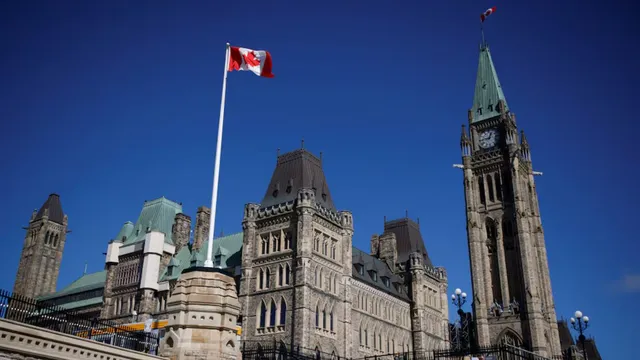- By Supratik Das
- Wed, 09 Apr 2025 03:30 PM (IST)
- Source:JND
In a step that is likely to prove advantageous to thousands of Indian students and immigrants, the Canadian government has raised its federal minimum wage by 2.4 per cent. Effective April 1, 2025, the minimum wage has been raised from 17.30 Canadian dollars (about INR 1,053) to 17.75 Canadian dollars (about INR 1,080) an hour. The annual increase is calculated using Canada's Consumer Price Index (CPI) and is meant to assist employees with managing escalating inflation and the cost of living. The adjustment covers employees in the private sector working within federally regulated industries like banking, interprovincial transportation, and telecommunications.
Closer Toward A More Equitable Economy
"The federal minimum wage provides stability and predictability for Canadian employees and employers alike and reduces income inequality on a broad scale. Today's raise moves us closer toward a more equitable economy." Canada's Minister of Employment, Workforce Development and Labour, Steven MacKinnon, stated. Employers have already been instructed to change their payroll systems so that all eligible employees, including interns, receive the increased wage.
Apart from the federal hike, several provinces are also increasing their minimum wage rates. Nova Scotia has increased its wage to CAD 15.65 (INR 953) from CAD 15.30 (INR 931), Newfoundland and Labrador to CAD 16.00 (INR 974) from CAD 15.60 (INR 950), New Brunswick to CAD 15.65 (INR 953) from CAD 15.30 (INR 931), and Yukon to CAD 17.94 (INR 1,093) from CAD 17.59 (INR 1,071).
Wage Increase To Favor Indians In Canada
Based on Canada's 2021 Census, close to 1.35 million individuals of Indian origin live in Canada, representing around 3.7 per cent of the country's population. Indian nationals also represent approximately 22 per cent of Canada's temporary foreign workers, with most working in minimum-wage or part-time jobs. The pay raise is a welcome relief to most Indian workers who are grappling with higher prices of basic items like groceries, fuel, and rent. It will also help Indian students studying in Canadian universities who take up internships and part-time jobs in federally regulated industries to sustain themselves.
Indian professionals and student organisations in Canada have hailed the move, saying that it will bring much-needed respite in the face of economic uncertainty and rising inflation. Experts opine that although the rise may appear marginal, it is a step in the direction of more sustainable income for immigrants and temporary workers.

